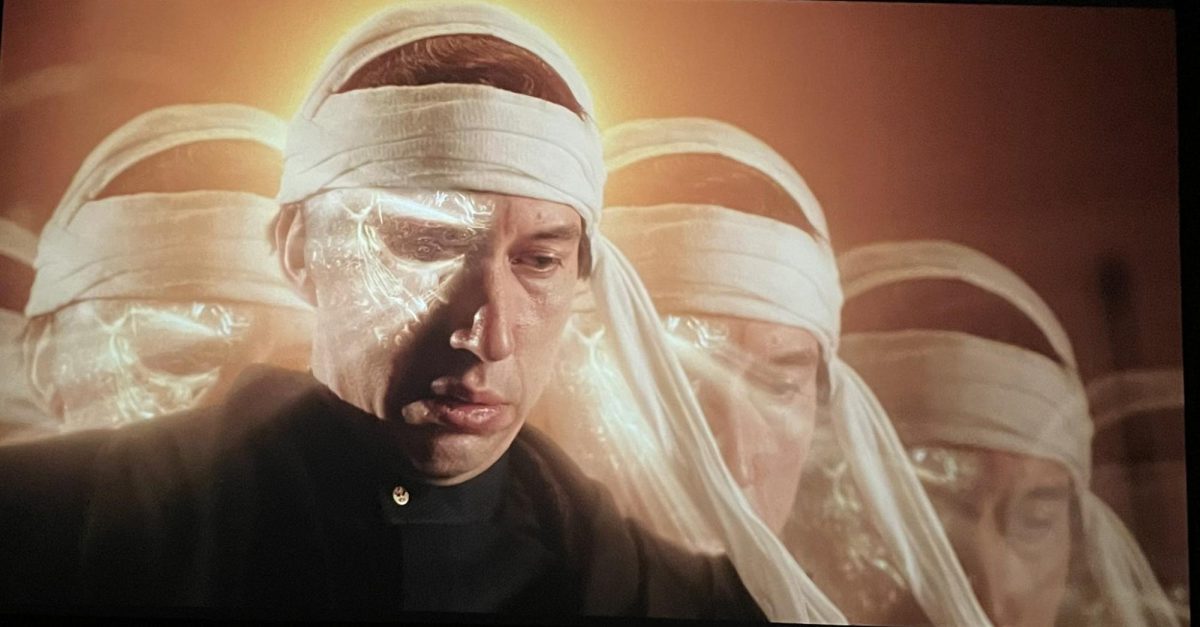Guys. GUYS. This series. Specifically, “A Series of Unfortunate Events,” is super good. I read the books a while ago, and they were also great. There are 13 of them and they’re reasonably thick, so if you go that direction then you won’t have lack for reading material. But the new series out on Netflix is amazing – seriously, go watch it.
As with most adaptations, the books are always better than the movies. Not by much in this case, but still better. “A Series of Unfortunate Events” is, appropriately, 13 books long. This series follows the three Baudelaire siblings, Violet, Klaus and baby Sunny, who are orphaned and homeless because of a mysterious fire which destroys their home. Each book logs their misadventures of being passed around from guardian to guardian. At the same time, they must avoid the sinister Count Olaf (played amazingly by Neil Patrick Harris), who will do anything and everything within his power to get his hands on their fortune. The books are great on their own, but I have to compare them to their TV counterparts in this case. The books are much darker, with less humor. They focus almost entirely on the children with little mention of any other side plots. Choosing to exclude anything other than the children’s perspective adds a little more mystery to the plot. You only know what they know, so you have to figure out what’s going on when they do.
So maybe you don’t have enough time to sit down and binge-read 13 books, but you do have enough energy to flop down eagle-spread and sneak in a 45-minute episode every now and then. I get it. And I respect that choice. This series is definitely one worth seeing. One of the bigger problems with book-to-television adaptations is that they change things. Sometimes it can’t be helped, like if a character is thinking to themselves. On other occasions, the director just doesn’t like how it was written in the book. Not here, though. The effort and detail that the director went to when filming the TV adaptation of “Unfortunate Events” is mind-blowing. Every little element in the books is referenced, if not found in the show. One of the defining parts of the books is how every now and then, the author, Lemony Snicket, will diverge from the normal story and give a little aside in the form of a paragraph or two to explain the story, himself, or give some background information about something he thinks the reader should know. In the Netflix series, they actually got Lemony Snicket (played by Patrick Warburton, the guy who voiced Kronk) to simply appear in the background in between dialogues and give little asides. It is implemented beautifully and fits in wonderfully with the progression of the story.
The one major thing about the Netflix series that is different from the books is the amount of humor. There was some humor in the books, but it was mostly centered on wordplay. The humor presented in the show is given more through the dialogue. While there are more jokes overall, but they still center mainly around plays on words. The way they are delivered seems almost ironic, though. The characters do not laugh and sometimes do not even acknowledge their cleverness. This serves to make the laughable moment even more enjoyable.
Finally, let’s discuss the songs of the series. The title song that plays before each episode is interesting and different from a normal episode opener because with each successive episode, the words of the song change a little to reflect the happenings of the previous episode. It almost serves as a way to keep up with what has happened if the viewer does not remember. The episodes are split up in a way that they represent half of a book. Currently there are only eight episodes available as the first “season,” so technically you can only watch one third of the entire series. However, the way that they concluded the first series was unique. All the main characters were depicted doing whatever they had been at the end of the episode. However, all the characters began to sing a song that pretty much represented everything that had happened so far. Some sang happily, Count Olaf sang while smirking, and the orphans sang while appearing to be on the verge of tears. Because of the conflicting emotions, there was no clear overall mood. The entire series can be described in the same way as the song: delightfully dismal.
Categories:
Netflix’s adaptation of ‘A Series of Unfortunate Events’ exceeds expectations
Joseph Messier, Contributor
January 30, 2017
0
Donate to The Tiger
Your donation will support the student journalists of Clemson University. Your contribution will allow us to purchase equipment and cover our annual website hosting costs.
More to Discover






